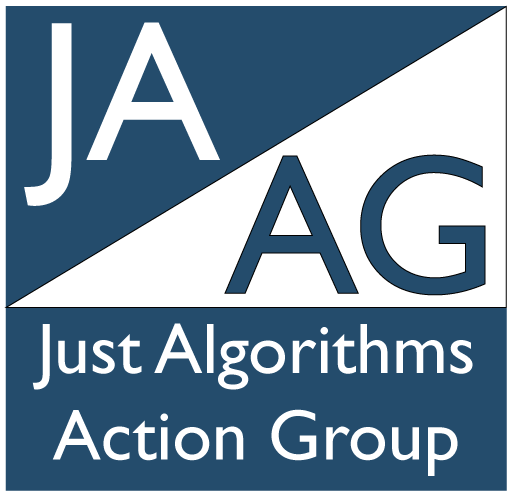Just Algorithms Action Group (JAAG)
was established in 2019, in response to concerns about the adverse impact on individuals of welfare system reforms, in which Artificial Intelligence and algorithms had played a part.
JAAG is a not-for-profit membership organisation. It was founded by members from a Quaker background but welcomes members of all faiths and none.
JAAG aims to:
Raise awareness about how modern decision-making systems (rule-, algorithm- and AI-based-systems) are being used, and their potential for unjust and harmful effects on individuals
Advocate for all these systems to be guided by ethical and regulatory frameworks, standards and protocols, in all aspects of their development, implementation, and use
Help develop and put into operation a best practice protocol for all organisations that use these systems
Help promote a professional body for commissioners, designers, auditors, and users of rule-based systems and algorithm enabled systems
Work together with others to create a movement for beneficial change, initially in the United Kingdom
Values and Principles
JAAG’s fundamental values are: peace, equality, simplicity, truth, integrity and sustainability.
We operate in ways that reflect our values.
We are a membership organisation; we depend on volunteer effort, supplemented by some paid specialist input.
We are an Action Group: we seek impactful outcomes.
We seek better technology, better technical approaches, and better standards so that systems can be conceived, developed, constructed, operated, maintained, and finally decommissioned in an ethical manner.
We seek alliances with likeminded organisations; we do not have a monopoly on ethical approaches.
JAAG promotes fairness and transparency in digital systems so that we can live in a safe interconnected world:
Ensuring that stakeholders are heard so that engineers check the likely impact of the systems they are building and put the lived experience of people first.
Alerting and equipping individuals to recognise misuse
Establishing industry standards
Ensuring that system stewardship is designed in and maintained
